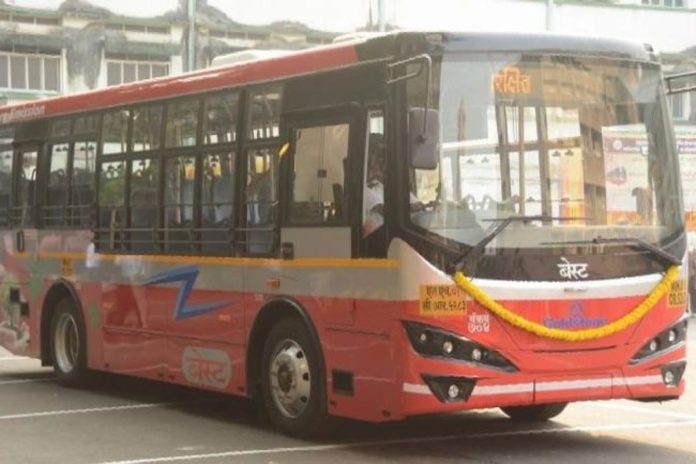Snapshot
-
‘Wet-lease’ buses under the gross cost contract (GCC) model have helped the transport company reduce losses by more than Rs 400 crore in a year.
The cost per kilometre for Brihanmumbai Electric Supply and Transport (BEST) buses in Mumbai has decreased by 30 per cent in recent years.
It is reportedly owing to an influx of ‘wet-lease’ buses under the gross cost contract (GCC), which presently accounts for 48 per cent of the fleet of 3,619 buses.
This information was presented in the study by the World Resources Institute (WRI) India at the recent Urban Mobility India Conference, reports Economic Times.
As per the ‘wet-lease’ model, BEST selects a contractor and pays it a predetermined per-kilometre rate for a specified period of time. In exchange, the contractor will supply the buses, hire the drivers, and handle maintenance and insurance.
A gross cost contract pays the operator a specified sum to provide a specified service for a specified period. All revenue collected is for the authority.
The BEST administration and its parent body, the Brihanmumbai Municipal Corporation (BMC), saw wet leasing of buses as an essential reform to bridge the gap between the undertaker’s revenues and expenditures.
BEST officials stated that the GCC model has helped the transport company reduce losses by more than Rs 400 crore in a year.
In September 2019, BEST received its first shipment of air-conditioned minibuses under wet-lease model.
According to the WRI report, “The current outlay of buses at 60,000 in urban areas, including Mumbai, is still inadequate and there is a need for at least 1.3 lakh public buses (more than double) to meet rising demand.”
“By 2030, Indian cities will need to invest at least Rs 7.5 lakh crore to meet bus transport demand,” added the report.
Mumbai has the largest fleet of electric buses among metro cities, with 403 e-buses in service to date.
The report further stated that, “For Mumbai, the electrification targets have been set for the next five years. It plans 50 per cent fleet being e-buses by next year followed by 100 per cent by 2027. Also, there are plans to get 10,000 buses to cater to the huge demand for public transport buses across island city and suburbs.”


